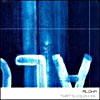
Comment
on this story
|
 |

This Week: The old guy releases another masterpiece and two obscure indie bands try to carve their own niche
Bob Dylan
Love and Theft (Columbia)

Once upon a time in a place known as the '60s, Bob Dylan was the Man. His albums set the standard and inspired a whole generation of musicians and fans to question what they knew and reach for something else. Grad students wrote theses and dissertations on his work. Somewhere in the mid-'70s the man began to stumble and, although he still wrote some great songs, he was only a shadow of his former brilliance. With what looks to be his second great album in a row, could Dylan be experiencing yet another creative peak? Here's what our two resident music geeks and Dylanologists, Jesse Fox Mayshark and Joe Tarr, have to say.
JFM: First, the title, Love and Theft. Is it A.) a summary of his current view of life B.) an acknowledgment of his ambiguous relationship with American musical forms (i.e. he treasures them and pillages them at the same time) C.) something he saw written on a bathroom wall D.) none of the above. And what's up with the funny little riverboat gambler mustache?
JT: Hmmm. I never really contemplated the title. I think it could be E.) All of the above. Dylan has always been too ambiguous for easy interpretation. I once heard a critic describe him as having given rock 'n' roll meaning (with his early folk stuff) and then rescued rock 'n' roll from meaning (with his mid-'60s surrealism). His best work can mean as little or as much as you want it to. My favorite song from the new CD, "High Water," has so many priceless lines that seem to mean so much and on another level are just complete nonsense: "They got Charles Darwin trapped out there on Highway 5/ Judge says to the high sheriff I want him dead or alive/ Either one I don't care."
JFM: Yeah, "High Water" is the obvious classic here. But the more I listen to it, the more I think this is a great Dylan album—his second in a row, after almost 20 years of stuff that was fair to middling. I think the two traditional folk albums he did in the early '90s helped reconnect him somehow. You can draw a straight line from his 1960s records to these last two albums—and that line would bypass a good deal of the 1970s and '80s. Wherever he went off to for all that time, he's back. He sounds different, of course, and not just his voice (though I love the way it keeps getting raggeder and rangier, just like Ralph Stanley's). It's like now he really knows things that he only understood in theory before—he's lived them, not just seen them from a distance. And he's more optimistic than on Time Out of Mind. He's playful in a way he hasn't been in years. I love all the throwaway jokes on this one, the oddball humor and puns ("Freddy or not, here I come," "Call up room service, tell them 'Send up a room'").
JT: Don't forget, "'As great as you are man, you'll never be greater than yourself'/ I told her I didn't really care." I think a lot of it is he sounds so much more confident, so sure of who he is and what he can do. And you're right of course about those two albums of old folk tunes. In interviews he's said he was inspired to make them after revisiting the folk, blues and country of the late '20s and early '30s—the stuff you find on Harry Smith's Anthology of American Folk Music, which inspired him back in the early '60s. And this new album feels very much American, both musically and lyrically. On Time Out of Mind, Dylan sounded like he was facing down death, feeling like he didn't have much time left and couldn't think of much else to say—all he had was the music. And I think that was a big rediscovery of purpose for him. The new album sounds happy to me, in that Dylan is reveling in his ability to create music, art. Listen to "Po' Boy," the way he enunciates each line, and the humor through all of it. He's having fun.
JFM: Right, and with the music as much as the words. Jump blues, jazz, Western swing, straight-up rock 'n' roll, that out-of-nowhere string section on "Floater (Too Much to Ask)." Time Out of Mind was pretty monochromatic, it all had that ghostly Daniel Lanois rumble. This one's all over the map, but it works together like a crazy quilt of American styles. It sounds modern too—a 21st century album made out of pieces of the 20th century, melted down and reformed. A lot of it sounds like it's begging for cover versions. How long will it take someone to record "Bye and Bye" or "Moonlight"? Of course, Sheryl Crow already recorded "Mississippi." At first, I thought I liked her version better, because Dylan buries the melody a little. But it only took three times through to change my mind.
Anyway, song for song, this is a great record. He sounds terrific, his writing is sharp, the band is loose and rollicking.
JT: It's too early for me to call it a great record. It's too dense somehow, and I can't quite absorb it, though I certainly like what I hear. Sometimes I wonder if Dylan has become so much of an enigma that he hides behind it. On the other hand, he also sounds like he no longer understands anything about the world, and has stopped trying to understand it and simply embraces its mystery. And that feels like a hard-earned wisdom that will take me quite a few years to really understand.
JFM: Yeah. If we make it to 60, he'll be waiting there for us.
Jimmy Eat World
Bleed American (DreamWorks)

The members of Jimmy Eat World may have a lot to answer for with the release of Bleed American, their third full-length record. Die-hard fans of emo—a descendent of the Washington, D.C. hardcore scene of the early '80s with pop-punk singalong melodies and unashamedly sincere heart-on-sleeve lyrics, hence "emo" from "emotional"—demand a pretty high level of integrity from their favorite bands (the Get Up Kids, the Promise Ring), clamoring that any band that gets attention from anyone outside their insular little community is a sell-out. And signing a distribution deal with DreamWorks, not to mention that Rolling Stone named them the hot band of the summer, isn't a good sign that art will win out over commerce for Jimmy Eat World. With a mainstream rock scene overflowing with catchy pop punk, emo could break big this fall. If it does, Jimmy Eat World will probably bear the responsibility, because Bleed American is a standout from start to finish.
From the opening metal riffs of the title track, this record means business. There's a brief rest in the middle for a couple of ballads, but the dominant mood here is rocking out, with crisp shout-out-loud anthems and stinging, irony-free guitar solos. It's a polished effort, sparkling with big-budget studio sheen, but it's also full of raw buzzing energy. The lyrics tend toward the adolescent, but when the band crashes in on the chorus of "The Middle," even after lines like "Live right now/ Just be yourself/ It doesn't matter if that's good enough for someone else," it is good enough.
Whether Bleed American is truly emo is best left to the purists. But that's like counting angels on the head of a pin, and who's got time for that when there's rock as good as this to listen to?
—Matthew T. Everett
Aloha
That's Your Fire (Polyvinyl Records)

Post-rock is one of those genre classifications that doesn't really exist. I mean, when anyone says "post-rock," what they really mean is, "music that sounds like Tortoise."
And yes, Aloha is another of those Tortoise sounding bands: a collaboration of prog rockers and jazzbos competing to see who can play the most instruments in meandering songs with odd time signatures. Luckily, the band usually manages to avoid the post-rock, wallpaper music clichés and come up with some music that actually, well, rocks.
What sets the band apart from the bearded hordes of post-rockers is lead vocalist Tony Cavallario. Cavallario sets a precedent by creating vocals that mesh with—rather than distracting from—the music. Aloha's jazzy chord structures and offbeat rhythms surely presented him with some challenges, because it would be tough for anyone to come up with lyrics and melodies that work in what is potentially stifling musical architecture. Cavallario actually pulls it off quite well, sounding something like King Crimson's Adrian Belew or a metaphysical David Byrne in the process.
That's Your Fire presents listeners with the expected cornucopia of instruments: samples, synth, vibraphone, accordion, timbales and (of course) drums, bass and guitar. Interestingly, two members are credited as playing triangle on the album—and I can't distinguish one players' triangle style from the other. All jokes aside, I'd recommend this album to anyone with an interest in the outer reaches of modern jazz fusion.
—John Sewell

October 11, 2001 * Vol. 11, No. 41
© 2001 Metro Pulse
|